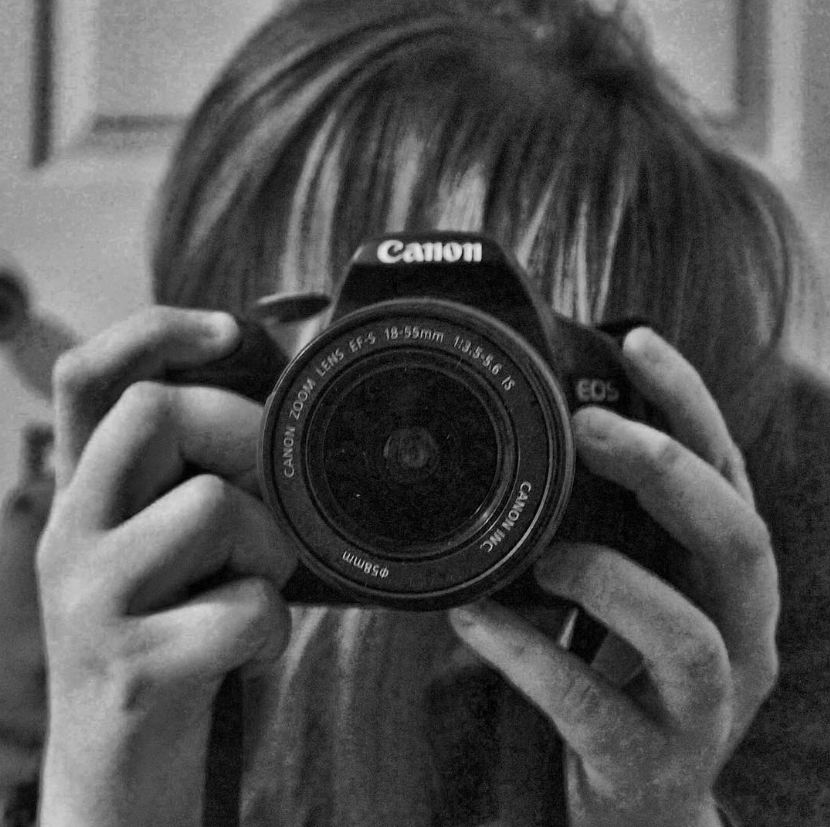Meet our #Warrioroftheweek, Viktorie Srnková💙
Spotlight on: Viktorie
I’ve experienced mild visual static that becomes more pronounced in shadows or darkness for as long as I can remember. I’ve also always been sensitive to light. When I go outside without sunglasses, I constantly have to squint my eyes. Some sunglasses don’t provide sufficient relief, especially when the sun is strong, to the point where if I’ve applied sunscreen to my face that day, it often ends up in my eyes at some point. I also believe it takes me much longer to adjust to the dark than it does for other people I know; I’d estimate it takes me about 2 minutes longer.
This sensitivity to darkness is definitely due to the static. The visual static makes it difficult to distinguish between shadows and lighter areas. Interestingly, when there’s a slight light source, like a window with blinds at night, I almost see an aura around it, and in other parts of the room, I’m almost blind. As I turn off the lights, I’m completely blind for a while. I don’t see the static as much during the day, especially not outside on a sunny day. I mostly only see it in shadows and dark areas.
I can stand in well-lit places and look at a dark area and only see static there. During the day, I usually only see it on white walls inside, especially if they are not directly illuminated. If you shine a flashlight closely on a white wall during the day, I’ll only see static where the light of the flashlight doesn’t reach. If the light is weak, there will be a noticeable difference in the amount of static in those two areas.
I dislike reading because I feel like the pages are filled with static. If the text doesn’t interest me, I often get lost and sometimes read the same sentence repeatedly due to disorientation. When I close my eyes at night, that’s when I see the most static. Sometimes it creates waves or expanding rings of light when I look directly in front of me with my eyes closed. To help me fall asleep, I usually try to look up with my eyes still closed, which puts the pulsating light in my peripheral vision.
Around the time the sun goes down and later, car lights and street lights start to create annoying light streaks. It’s even worse when it rains. I also try to avoid driving at night when I can, as it makes me uneasy, and I feel like I can’t see perfectly clearly. Note that my vision doesn’t require any corrective glasses, well, except for sunglasses. Cars going in the opposite direction sometimes briefly blind me.
I would say that my case is perhaps milder than others because I don’t notice it much when I’m outside during the day. I grew up with this condition, so I automatically mostly ignore it. What bothers me is when people don’t believe me and think I’m lying for attention.
Furthermore, my father is also sensitive to light, but I never asked him about the static, as I only recently discovered that it’s not normal (we both have greenish eyes). I don’t have any other symptoms, except that if I’m not tired, I sometimes have trouble falling asleep, but that’s very rare. Other notable things about me are that I spend a lot of time with my notebook, I always dream and remember my dreams, I’m a light sleeper, and sometimes I take two-hour naps multiple times a day. I’m anemic (low on iron), and weather sometimes worsens my condition, making me sleepier, increasing the static, and causing lightheadedness.
I guess what I’ve overcome is a way to help me fall asleep while seeing static. I sleep with a video playing in the background, usually gameplay. This helps me not focus on the static since I have something interesting to watch. I’m one of those people who need to do at least two activities at once to fully pay attention, so if I only turn on a video without doing something else like eating, knitting, crocheting, painting, or other activities, my body almost immediately thinks, “I should sleep” or “I’m bored, I should do something or I might fall asleep.” Background noise also helps me not notice the static as much. Sleeping in absolute silence is very challenging for me.
My advice for people with similar experiences would be to invest in good polarized sunglasses that enhance green colors, making them even greener on sunny days. These glasses can minimize the golden-gray filter effect caused by sunlight and deepen colors. I once had sunglasses like these, and they significantly improved some of my symptoms, even helping with nighttime driving to a certain extent. Another helpful tip is to engage in hobbies or activities that distract your mind. Keeping your mind occupied prevents it from fixating on the visual static.







